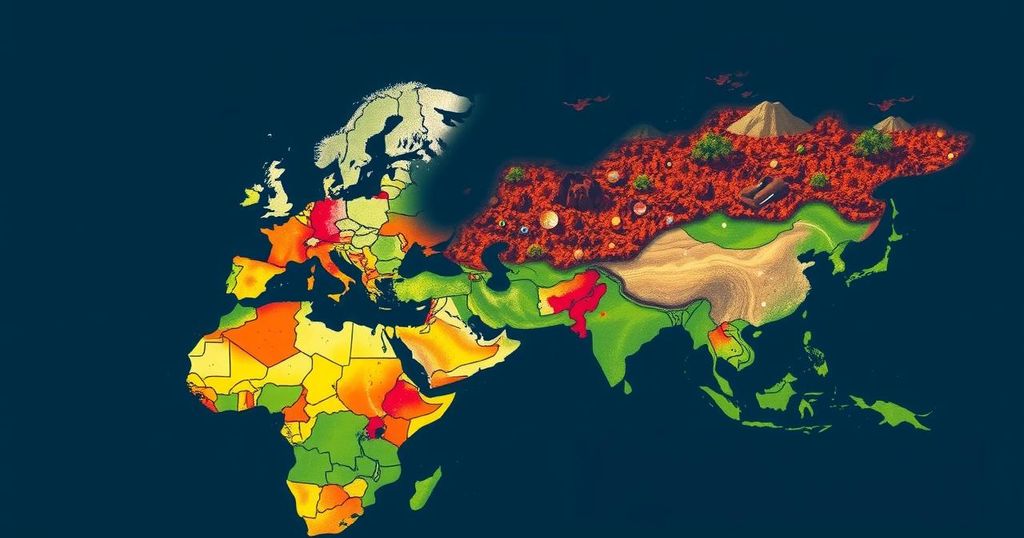International Court Hears Calls for Accountability in Climate Crisis

The International Court of Justice hearings see representatives of vulnerable nations calling for legal accountability from wealthy countries for their role in the climate crisis. They argue that a small number of nations produce most greenhouse gas emissions while the most affected, such as Pacific island nations, bear the consequences. The hearings will involve 98 countries discussing legal responsibilities and reparations related to climate change.
During a significant hearing at the International Court of Justice (ICJ) in The Hague, representatives from vulnerable nations asserted that a select group of countries should be held legally accountable for the ongoing climate crisis. Ralph Regenvanu, Vanuatu’s special envoy, emphasized that responsibility rests with “a handful of readily identifiable states” that have contributed extensively to greenhouse gas emissions but face minimal consequences. The hearing is a result of years of advocacy by Pacific island nations, particularly Vanuatu, and aims to clarify the legal responsibilities of states in addressing climate change and its consequences.
Pacific island nations, notably Vanuatu, are already experiencing the severe impacts of rising sea levels and extreme weather events. Regenvanu remarked, “We find ourselves on the frontlines of a crisis we did not create.” The ICJ is set to hear from 98 nations over the upcoming weeks, including historical polluters such as the United Kingdom and Russia, along with nations like Bangladesh and Sudan that have contributed little to global emissions yet suffer from their effects.
Regenvanu highlighted the alarming increase in emissions, which have risen by over 50% since 1990, despite warnings from scientists. The court will also consider personal testimonies from individuals affected by climate change as part of this advisory opinion process. Legal counsel Ilan Kiloe pointed out that the climate crisis threatens the self-determination rights of affected nations, tying the current climate injustice to the historical context of colonialism.
Lead counsel Margaretha Wewerinke-Singh urged that responsible states must make reparations proportionate to their historical contributions to global warming, potentially involving monetary compensation. Youth representative Cynthia Houniuhi expressed disappointment in the previously hopeful Paris Agreement, asserting it had been undermined by fossil fuel interests. The ICJ, alongside other international courts, seeks to provide clarification on state responsibilities under international law concerning greenhouse gas emissions, although its opinions will not have binding authority.
The current proceedings at the International Court of Justice mark a critical juncture in the global fight against climate change. For years, representatives from vulnerable nations, primarily in the Pacific region, have been advocating for recognition and accountability from countries that have significantly contributed to greenhouse gas emissions. This hearing, initiated in response to a UN General Assembly resolution, seeks legal clarification on states’ obligations regarding climate action and the ramifications of failing to fulfill these responsibilities. The implications of this legal inquiry have far-reaching consequences for both global climate policy and the rights of nations most affected by climate change.
In summary, the hearings at the International Court of Justice represent a pivotal movement towards assigning legal accountability for the climate crisis. Vulnerable nations, particularly in the Pacific, are compelling the court to recognize the disproportionate impacts they face due to historical emissions by developed nations. The outcomes of this process may redefine international obligations concerning climate change and provide a framework for justice and reparations.
Original Source: www.theguardian.com






